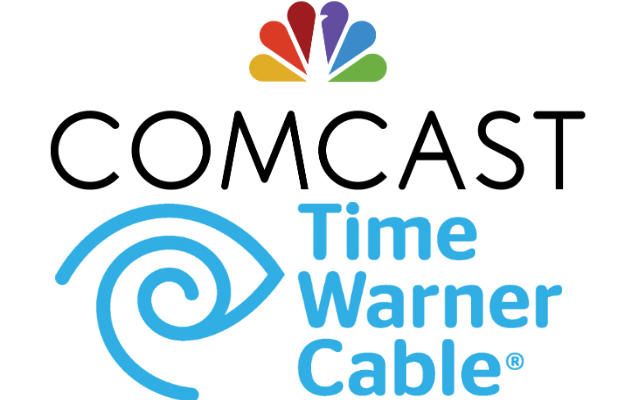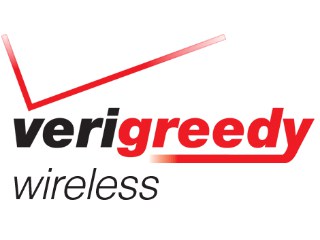 The largest telecom companies in the United States, their trade associations, and Ajit Pai, one of two Republican commissioners serving at the Federal Communications Commission routinely claim America has the best broadband in the world. From the perspective of providers running to their respective banks to deposit your monthly payment, they might be right. But on virtually every other metric, the United States has some of the most expensive broadband in the world at speeds that would be a gouging embarrassment in other countries.
The largest telecom companies in the United States, their trade associations, and Ajit Pai, one of two Republican commissioners serving at the Federal Communications Commission routinely claim America has the best broadband in the world. From the perspective of providers running to their respective banks to deposit your monthly payment, they might be right. But on virtually every other metric, the United States has some of the most expensive broadband in the world at speeds that would be a gouging embarrassment in other countries.
Slovakia – A Long, Tough History, But Better Broadband than the United States
Bratislava, the capital city of Slovakia, has existed since the year 907. From the 10th century until just after the end of World War 1, the city (then commonly known by its German name of Pressburg) was part of Hungary and the Austro-Hungarian empire. After the “War to End All Wars,” ethnic Czechs and Slovaks jointly formed a democratic Czechoslovak Republic in 1918 which existed peacefully until the Germans arrived in 1938 and renamed part of Czechoslovakia… Germany.
Unfortunately for the Czechs and Slovaks, life didn’t get much easier after the end of World War II. As Stalin sought to create a buffer zone between Germany (and western Europe) and the Soviet Union, Czechoslovakia, along with most of Eastern Europe, faded behind the Iron Curtain into the Soviet sphere of influence.

The city center of Bratislava
After decades of deterioration under autocratic rule, the Czechoslovak Velvet Revolution of 1989 restored multi-party democracy and Communism was was on its way to being fully extirpated across Europe.
By the time the June 1992 election results were announced, it was clear the country’s constituent Czechs and Slovaks had irreconcilable differences and were headed to national divorce court. On one side, the Czech-oriented Civic Democratic Party, headed by Václav Klaus. On the other, Vladimír Mečiar’s Movement for a Democratic Slovakia, whose aims were obvious based on its party name alone. With the writing on the wall, Klaus and Mečiar managed to work out an agreement on how to divide the country and on Jan. 1, 1993 the Czech Republic and the Slovak Republic were born.
Since the separation, Slovakia has prospered, and is now recognized to have a high-income advanced economy with one of the fastest growth rates in both the European Union and the OECD. It joined the EU in 2004 and adopted the Euro as its currency in 2009. Slovakia had to bring its economy up to date after fifty years of Communism. The country had a functioning telecommunications infrastructure, albeit one highly dependent on dilapidated equipment produced in the German Democratic Republic (the former East Germany) and the Soviet Union.
After the Slovak Republic was born, Slovenské Telekomunikácie maintained a monopoly on Slovak telephone lines and telex circuits under the close watch of the Ministry of Transport, Posts and Telecommunications. It took until the year 2000 for economic reforms to allow for the privatization of telecommunications. As was the case in many other central and eastern European countries, Germany’s Deutsche Telekom (T-Mobile) won a majority ownership in the company, which is today still known as Slovak Telecom.
The Slovak Broadband Marketplace Today
 The Slovak government insisted that telecommunications networks in the country be competitive and it maintains oversight to make sure monopolies do not develop. It rejected claims that total deregulation and competition alone would spur investment. Slovakia welcomes outside investment, but also makes certain monopoly pricing power cannot develop. As a result, most residents of Bratislava have a choice of up to eight different broadband providers — a mix of cable, telephone, wireless, and satellite providers that all fiercely compete in the consumer and business markets.
The Slovak government insisted that telecommunications networks in the country be competitive and it maintains oversight to make sure monopolies do not develop. It rejected claims that total deregulation and competition alone would spur investment. Slovakia welcomes outside investment, but also makes certain monopoly pricing power cannot develop. As a result, most residents of Bratislava have a choice of up to eight different broadband providers — a mix of cable, telephone, wireless, and satellite providers that all fiercely compete in the consumer and business markets.
Many providers are foreign-owned entities. UPC, Slovakia’s cable operator, is owned by John Malone’s Liberty Global. Slovak Telecom is owned by Germany’s T-Mobile/Deutsche Telekom. Tooway is a French company.
 Prices are considerably lower than what American providers charge, although speeds remain somewhat lower than broadband services in Bulgaria, Romania, and the Baltic States. At one address on Kláštorská, a street of modest single family homes (some in disrepair), these companies were ready to install service:
Prices are considerably lower than what American providers charge, although speeds remain somewhat lower than broadband services in Bulgaria, Romania, and the Baltic States. At one address on Kláštorská, a street of modest single family homes (some in disrepair), these companies were ready to install service:
- RadioLAN offers 18/1.5Mbps unlimited wireless service for $21.85 a month;
- UPC offers 300/20Mbps unlimited cable broadband for $30.63 a month;
- Slovanet offers 10/1Mbps DSL with a 240GB usage cap for $18.56 a month;
- Swan offers 10.2Mbps/512kbps unlimited DSL for $24.70 a month;
- Slovak Telecom offers 10/1Mbps DSL with a 240GB usage cap for $21.96 a month;
- Benestra offers 10/1Mbps DSL with a 4GB per day usage cap for $24.24 a month;
- Satro offers 9Mbps/768kbps unlimited wireless service for $29.32 a month;
- Tooway offers 22/6Mbps satellite Internet with a 25GB usage cap for $54.79 a month.
In other parts of the country, two providers are installing competing fiber broadband services. Slovak Telecom is slowly discarding its old copper wire infrastructure in favor of fiber optics, and is already providing 300Mbps service to some residents to better compete with UPC Cable. Some areas can get straight fiber service, others get VDSL, an advanced form of DSL offering higher speeds than traditional DSL. Orange, a provider not available in the immediate area of our sampled home, has already installed its own fiber service to over 100,000 fiber customers and is growing.
In comparison, Comcast sells 105Mbps service in Nashville, Tenn. for $114.95/mo (not including modem fee) with a 300GB monthly usage cap. That is one-third the speed of UPC Cable at nearly four times the cost… if you stay within your allowance. Prices only get higher after that.


 Subscribe
Subscribe
 Comcast customer service horror stories reached a level unparalleled by other cable companies when a Comcast
Comcast customer service horror stories reached a level unparalleled by other cable companies when a Comcast  N.Y. State Assembly Leader Joe Morelle: “The combination of Comcast and Time Warner Cable will create a world-class communications, media and technology company to help meet the increasing consumer demand for advanced digital services on multiple devices in homes, workplaces and on-the-go.”
N.Y. State Assembly Leader Joe Morelle: “The combination of Comcast and Time Warner Cable will create a world-class communications, media and technology company to help meet the increasing consumer demand for advanced digital services on multiple devices in homes, workplaces and on-the-go.” David Cohen, executive vice-president, Comcast: “The combination of Comcast and TWC will create a world-class communications, media, and technology company to help meet the insatiable consumer demand for advanced digital services on multiple devices in homes, workplaces, and on-the-go.”
David Cohen, executive vice-president, Comcast: “The combination of Comcast and TWC will create a world-class communications, media, and technology company to help meet the insatiable consumer demand for advanced digital services on multiple devices in homes, workplaces, and on-the-go.”

 Verizon believes it has a premium product and expects to be paid for it. Like a Neiman Marcus of the wireless industry, customers can expect a superior level of service, if they can afford to pay for it.
Verizon believes it has a premium product and expects to be paid for it. Like a Neiman Marcus of the wireless industry, customers can expect a superior level of service, if they can afford to pay for it. Under consideration by the Justice Department:
Under consideration by the Justice Department: Cox Communications has raised Internet speeds for its economy class customers in Arizona as it continues network enhancements across the state.
Cox Communications has raised Internet speeds for its economy class customers in Arizona as it continues network enhancements across the state.